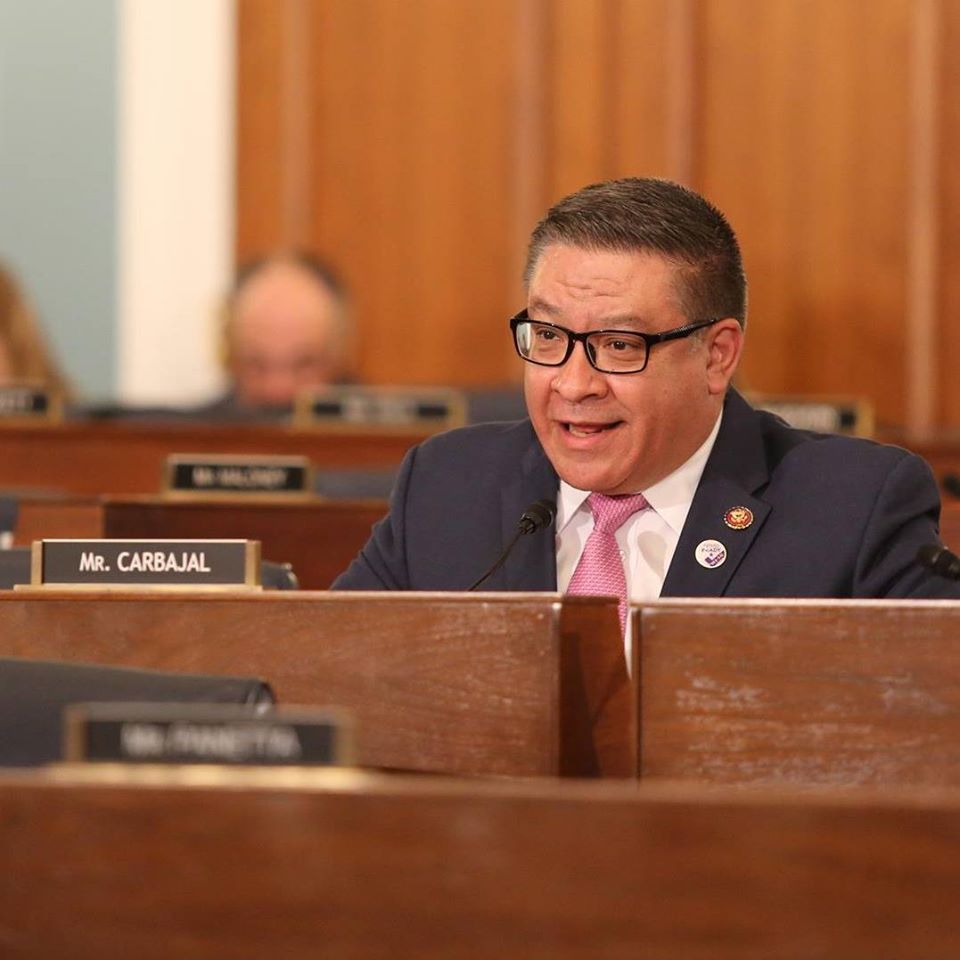Santa Barbara’s Congressmember Salud Carbajal Votes to Decriminalize Cannabis
Bill Passes to Expunge Criminal Records of Those Convicted of Marijuana Offenses

Santa Barbara’s congressional representative Salud Carbajal voted in favor of a House bill to decriminalize cannabis as a matter of federal law.
The bill passed by 228 to 164 on pretty much a party-line basis. What happens now in the Senate is a matter of speculation and conjecture, but the bill — the Marijuana Opportunity Reinvestment and Expungement (MORE) Act — is the first time either house has voted to decriminalize cannabis. In addition, the bill would expunge the criminal records of individuals convicted of marijuana possession-related offenses dating back to 1971. It would also levy a five percent federal excise tax on cannabis, the proceeds going to fund programs that would assist individuals adversely affected by the War on Drugs, job training, and mentoring programs.
Get the top stories in your inbox by signing up for our daily newsletter, Indy Today.
In a prepared statement, Carbajal declared: “Today we voted to finally reverse decades of discriminatory marijuana policy, invest in communities most affected by the failed war on drugs, and allow for a well regulated industry to grow our economy.” Republican Senate leader Mitch McConnell derided the bill as being a frivolous distraction from more urgent matters, suggesting House Speaker Nancy Pelosi opted to “puff, puff, pass” on COVID relief. McConnell has been slow to embrace any of the economic relief packages thus far proposed and has generally been regarded as an impediment to passage by both Republicans and Democrats now pushing a $908 billion relief bill.
Whether it passes or fails, the bill qualifies as a significant legislative bell weather. At this time, 15 states have legalized cannabis use and sale for recreational purposes. Another 36 have done the same for medicinal marijuana products. The bill’s sponsor, Earl Blumenauer, a Democrat from Oregon, noted that there are 50 million cannabis users throughout the United States, some in every congressional district in the country. The bill would remove marijuana from its classification as a “controlled substance” under federal law. Currently, federal law classifies cannabis as a drug with no redeeming medicinal values on par with heroin and LSD.
If such a bill were to be approved, it would help ease federal banking restrictions on cannabis business operations, currently a major inconvenience to the budding industry. Likewise, it would help pave the way for interstate trafficking of cannabis. This would be a major boon for cannabis cultivators throughout California — and Santa Barbara County. Currently, the county’s level of cannabis production vastly exceeds the home-grown appetite for consumption. Earlier this Fall, the house approved a measure that would strike many of the federal banking restrictions that currently inhibit traditional banks from catering to the cannabis trade for fear of criminal reprisal.
Because the War on Crime took a disproportionate toll on communities of color, most pro-cannabis measures allude to the expungement of criminal records for people convicted for possession. California’s Proposition 64, which in 2016 legalized cannabis in California, included provisions for doing so, but in Santa Barbara County, the expungement process has been slow to get moving. At a Board of Supervisors hearing on jail diversion efforts this Tuesday, county officials tacitly agreed to accelerate such efforts.
Cannabis foes have blasted the measure as political showboating that has little chance of success; others have argued that cannabis is often the first step on the road to drug addiction. The bill passed along party lines, but five Republicans voted for it and a handful of Democrats voted against it. Among the Republicans was California Congressmember Tom McClintock, a tart-tongued right-winger with libertarian tendencies who used to represent Ventura County in the state legislature.
Graham Farrar, one of Santa Barbara’s bigger and better known cannabis entrepreneurs, lauded the House vote, but cautioned it will bring “no tangible change on its own.” But in context of other cannabis related developments, he said it qualifies as “a big deal.” For example, he said, every cannabis measure on the ballot last month passed. Even three in states that voted for Trump. In addition, he said, the United Nations just voted to remove cannabis from the list of dangerous drugs. This action, he noted, was done at the instigation of the World Health Organization. Recent polls on the legalization of cannabis, he said, is tracking higher than ever.

Of course, none of this matters if Senate Leader Mitch McConnell remains unalterably opposed. McConnell, it’s worth noting, voted this year to legalize hemp — genetically a Siamese twin to cannabis. But even should McConnell remain opposed, control of the Senate remains very much up in the air, with both of Georgia’s Senate seats to be determined in a special election to be held January 5. (California Senator Kamala Harris — vice president elect — is co-sponsoring the bill at the Senate level.) While Republicans have long enjoyed an impregnable advantage in Georgia, that state — famously — switched sides and went for Biden in November, multiple recounts notwithstanding. Trump’s insistence that the election was stolen there and that the state’s election officials — all Republican — are corrupt is not bolstering Republican turnout.
Every day, the staff of the Santa Barbara Independent works hard to sort out truth from rumor and keep you informed of what’s happening across the entire Santa Barbara community. Now there’s a way to directly enable these efforts. Support the Independent by making a direct contribution or with a subscription to Indy+.




You must be logged in to post a comment.